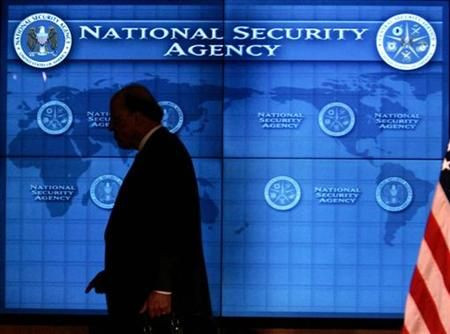NSA FISA Snowden Leaks: Why Oversight Of The NSA Falls Short

For over two months, the Obama administration has assured the public that between stringent rules imposed on the intelligence community and each branch of government monitoring its activity, the government’s surveillance programs do not infringe on Americans’ privacy.
But a staggering report from the Washington Post Thursday night has raised significant privacy concerns by revealing that the National Security Agency often violates the rules. Perhaps more importantly, the report raises serious questions about whether oversight by Congress and the Foreign Intelligence Surveillance Court (FISC), which administration officials have promised repeatedly is “rigorous,” is really effective. For the first time, those in charge of supervising the spy agency now admit their oversight is limited.
An audit from May 2012 detailing thousands of infractions by the NSA, leaked to the Post by former intelligence contractor Edward Snowden, was never shared with the Senate Intelligence Committee, which oversees the government’s surveillance operations. Sen. Dianne Feinstein, D-Calif., the committee’s chairman and a staunch supporter of the NSA programs revealed by Snowden, told the Post that her committee “can and should do more to independently verify that NSA’s operations are appropriate," and that "reports of compliance incidents are accurate.”
The key question here is whether the ability to independently verify the NSA’s activities is a crucial component to meaningful oversight. And the answer seems to be that it is. In a particularly stunning comment, the head judge on the FISC, the secret court which oversees surveillance operations, told the Post that the court’s oversight is limited by having to rely on the NSA’s own accounting of what goes on at the agency.
“The FISC is forced to rely upon the accuracy of the information that is provided to the Court,” Judge Reggie B. Walton said in a statement to the Post, responding to the audit report the paper obtained. “The FISC does not have the capacity to investigate issues of noncompliance, and in that respect the FISC is in the same position as any other court when it comes to enforcing [government] compliance with its orders.”
The admissions by both Feinstein and Walton indicate that oversight of the NSA is not as surefire as President Obama and administration officials have promised. “I've taken steps to make sure [the NSA’s programs] have strong oversight by all three branches of government and clear safeguards to prevent abuse and protect the rights of the American people,” Obama said a week ago.
In July, a former NSA analyst and whistle-blower, J. Kirk Wiebe, told International Business Times that any congressional or judicial supervision of the NSA was a “joke” without outside monitoring of the NSA’s activities. “We must grant access to NSA’s processes, the sensitive ones, the actual touching of data and information, that must be viewable by the FISA court, or some court, and by Congress, the two intelligence committees,” said Wiebe, whose own whistle-blowing attempts, along with those of his colleagues Thomas Drake and William Binney, were detailed in the New Yorker in 2011.
Wiebe, who left the agency in 2001, described the NSA as excessively hostile to congressional oversight. But his comments go to the heart of where, according to Feinstein and Walton's own statements, oversight falls short.
“What we have today is, ‘Shake hands, I’ll trust you,’” Wiebe said last month. “Years ago, I argued NSA ought to be sharing more with a select group in Congress. What’s it afraid of unless you’re doing something wrong?”
© Copyright IBTimes 2024. All rights reserved.






















